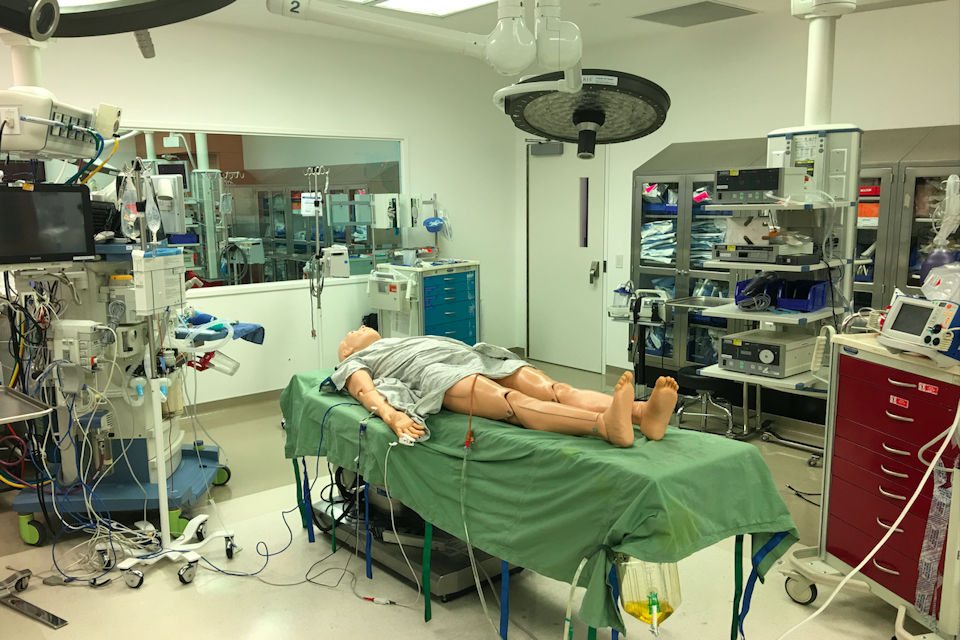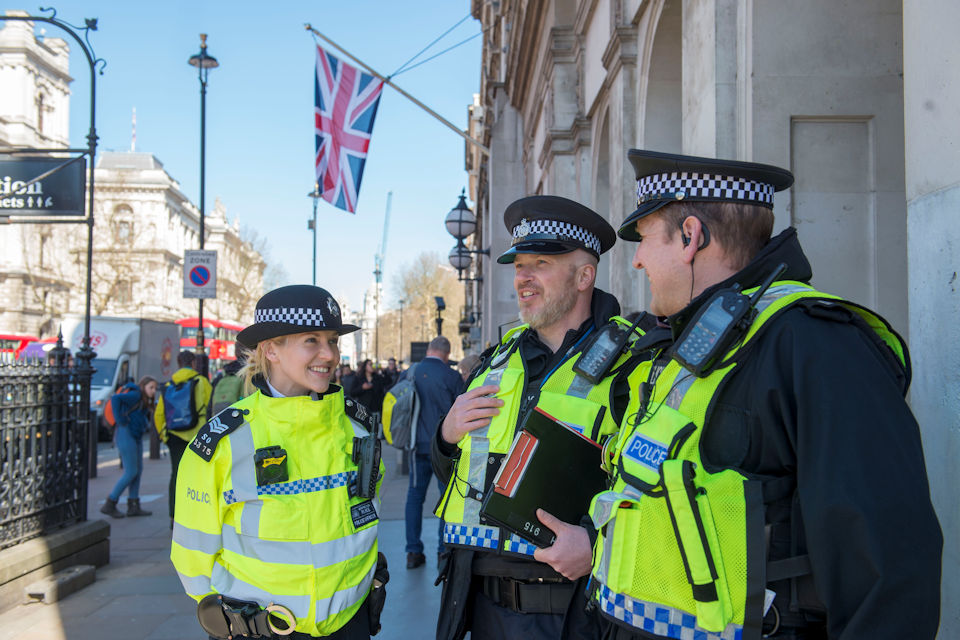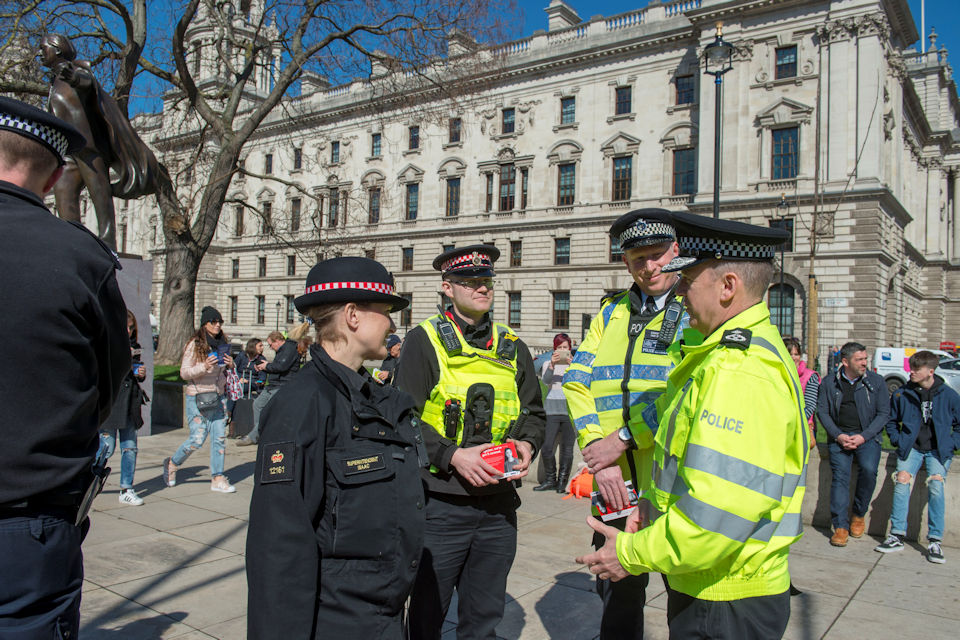News story: Joint Forces Command seeks out innovation in Silicon Valley
General Deverell met with academics, innovation units, tech startups and investors in San Diego, Los Angeles, Silicon Valley, and San Francisco. He also visited the US Space and Naval Warfare Systems Command (SPAWAR).
As the Ministry of Defence’s information command, Joint Forces Command (JFC) seeks to explore innovative new technology already being developed by partners, allies and the private sector. The mission for the trip was to explore how artificial intelligence (AI), machine learning, data analytics and autonomy could be used to bring advantage to the joint force.
Accompanying General Deverell on the trip was Lieutenant Colonel Henry Willi, from JFC’s innovation unit, the jHub.
While visiting the Cedars-Sinai Medical Center in Los Angeles, they had a tour of its Simulation Center for Advanced Clinical Skills, an immersive environment equipped with the latest in human patient simulators and medical devices. Here, General Deverell took part in a simulated operation on a lifelike mannequin patient. He then met representatives from the Cedars-Sinai Health System accelerator, which aims to help technology innovators turn their ideas into practical solutions that can improve the lives of patients around the world.

In Silicon Valley, they met with the Defense Innovation Unit Experimental (DIUx), a United States Department of Defense organisation focused on accelerating commercial technologies to the US military. Here they were briefed on DIUx’s approach to developing innovation, including how its innovation ecosystem benefits from strong links that have been developed with investors.
General Deverell also met with tech startup companies, including Pilot AI, Shield AI and Orbital Insight.
Pilot AI has developed a platform to provide artificial intelligence to devices with low computing power, sufficient to detect people, vehicles, buildings and weapons.
Shield AI, have developed Hivemind, an artificial intelligence platform that enables robots to see, reason about and search the world. Shield AI’s first product, Nova, is a Hivemind powered drone that searches buildings, whilst simultaneously streaming video and generating maps.
With more data than ever before being generated by satellites, drones, balloons, and other unmanned aerial vehicles (UAVs), Orbital Insight builds software that interprets this data to help businesses and governments to make better business and policy decisions.
Speaking about JFC’s appetite for innovation, General Deverell said:
Joint Forces Command aims to provide the UK Armed Forces with an edge over adversaries for wars in the information age. This trip to one of the world’s innovation capitals helps us secure advantage for the joint force.
He added:
By speaking to individuals who are already developing some of the most advanced technology in the world, we are closer to understanding how this can be applied in a military setting. We are preparing JFC and wider UK Defence for a future that counts technology such as AI, machine learning and autonomy as part of our armoury, both to deter our enemies and to protect our people.
The jHub, was created to enhance and improve the operation of the UK armed forces through innovation. This trip has reinforced my view that innovation is fundamental to Joint Force Advantage.
DIUx is an impressive player in the innovation ecosystem, so the jHub will forge closer bonds with them through a new liaison officer position.
JFC’s jHub is keen to speak to companies who have solutions which could be adapted and adopted by the military customer in months rather than years. If you would like to get in touch with the jHub, please email jhub@official.mod.uk

